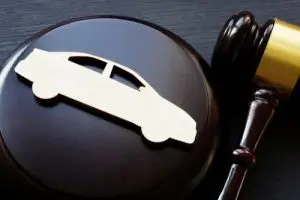
Alaska, Arkansas, Connecticut, and six other states may allow you to have open alcohol in your car in some circumstances. Generally, these states have lenient open-container laws, allowing passengers to carry open alcoholic beverages while someone else operates a vehicle.
However, California has strict laws on transporting alcohol in vehicles. If you’re traveling to California from one of these states, it’s important to note that you will face penalties for not adhering to the open vessel and drinking in vehicle laws of the Golden State.
If you need clarification on what is allowed, contact a Los Angeles DUI lawyer for more information.
In What States Can Passengers Drink Alcohol in the Car?
Several states allow passengers to drink alcoholic beverages while in vehicles. These states include:
- Alaska
- Connecticut
- Delaware
- Mississippi
- Missouri
- Rhode Island
- Tennessee
- Virginia
This information comes from the National Conference of State Legislatures, which offers detailed information on open container and consumption statutes. You can use this information to determine in what states you can have open alcohol in the car.
What States Have Looser Open Container Laws?
Reviewing open container laws by state shows that another two states – Arkansas and West Virginia -allow passengers to have open alcoholic beverage containers but forbid the passenger from drinking from an alcoholic beverage container in a motor vehicle.
Despite these more lenient rules for open alcoholic beverage containers, all 50 states and D.C. prohibit drivers from having a blood alcohol concentration (BAC) of 0.8%. A DUI in any state may affect your ability to drive in California.
Additionally, most states only allow public consumption of bottles of wine and other alcohol in specific areas. Taking a bottle of alcohol away from a bar for off-premise consumption in a public space – like a parking lot – may lead to additional legal consequences.
Can You Transport Open Alcoholic Beverage Containers?
Most states, including California, ban drivers and passengers from carrying open containers of alcohol in their cars. This ban means that no vessel that has ever contained alcohol may be in a spot readily accessible by a person in the vehicle.
However, some states relaxed their laws on removing partially consumed bottles of wine from restaurants. In fact, 42 states allow you to take this kind of alcohol home with you, though generally, you have to keep the vessel out of the passenger compartment of your vehicle.
Some states have unique variants for this law. So, in what states can you have open alcohol in the car?
- Delaware allows you to carry liquors other than beer
- Hawaii allows you to carry beer, liquor, and wine
- Kansas allows you to carry alcoholic liquor
- Vermont allows you to carry wine and specialty beers
- Washington State allows you to carry sake and wine
In many states, you can avoid a container violation by keeping the wine or another alcoholic beverage container in an unlocked glove compartment or in the trunk of your vehicle to carry it back to private property.
What’s California’s Open Container Law?
California has strict laws about the transportation of open alcohol containers.
According to the California Driver’s Handbook, you can only transport alcohol inside a vehicle if you’re over 21 or have someone over 21 with you and the vessel is unopened, sealed, and full. Open containers, including any with a broken seal, must go in the trunk or another area without passengers.
California counts any canister as open if it has a broken seal. The state also considers re-corked wine bottles with a broken seal as open containers.
Are There Exceptions for People with Off-Site Liquor Sales Licenses?
California allows you to carry closed alcoholic beverage containers if you work for a business with an off-site liquor sales license. In this situation, you may not face the same container rules if you carry alcohol with a broken seal.
A lawyer can help you learn more about the specifics of legally transporting alcohol in motor vehicles, especially in an unsealed container.
Can You Ever Drink in Your Vehicle?
Much like the state’s open container laws, California also forbids the consumption of alcohol by both drivers and passengers in a vehicle on a public roadway. Under Vehicle Code Section 23221, you are guilty of an infraction for drinking in a car on any public road.
This infraction also carries a maximum penalty of $250. The consumption of alcohol can lead to more severe charges if it raises your blood alcohol content (BAC) above the legal limit. California requires drivers to keep their BAC under 0.08% in many cases.
Violation of alcohol laws and alcohol consumption can result in charges for driving under the influence (DUI).
Do Underage Drivers and Passengers Have Special Rules?
The above laws assume that the drivers and passengers are older than 21. In California, underage individuals face special restrictions when it comes to transporting alcohol in their vehicles. Underage drivers may not:
- Possess an open vessel containing alcohol
- Possess a closed container of alcohol
While adult drivers may have an open alcoholic beverage container in their trunk, underage drivers and passengers may not have alcohol anywhere in their vehicles.
An underage driver or passenger violating Vehicle Code Section 23224 is guilty of a misdemeanor and faces:
- A jail sentence of up to six months
- A fine not to exceed $1,000
You can learn more about alcohol laws related to alcoholic beverage containers with legal professionals.
Did Covid Regulations Change Any Laws on Alcohol Transport?
The District of Columbia and 14 states adjusted laws about off-premise consumption of alcohol during Covid restrictions. These laws allow people to purchase alcoholic liquor through carry-out, take-out, or curbside sales.
However, in most states, individuals still have to keep alcoholic beverages in motor vehicles closed and out of the driving compartment.
Learn More About States That Allow for Open Containers of Alcohol
What states allow you to have open alcohol in the car? Alaska, Arkansas, Connecticut, Delaware, Mississippi, Missouri, Rhode Island, Tennessee, Virginia, and West Virginia have relatively lax container rules.
California, however, can hand down harsh penalties if you have an unsealed container in your vehicle, even if the police do not accuse you of drunk driving. You can learn more about regulations on the possession of alcohol with a Los Angeles DUI lawyer.
Dig into container restrictions by calling or completing our online contact form.






